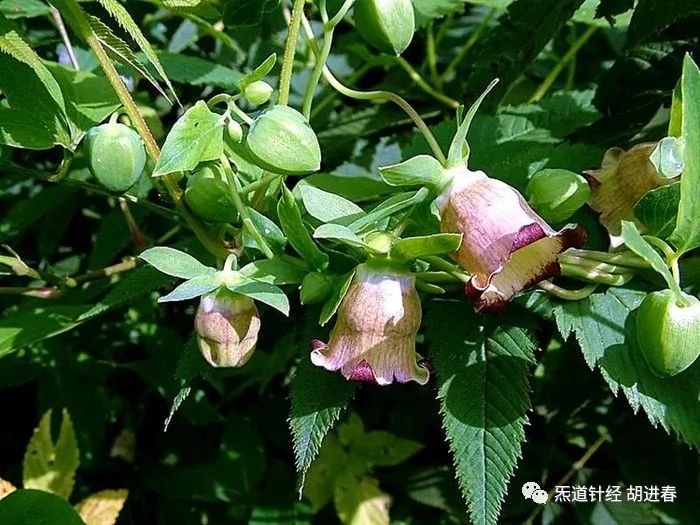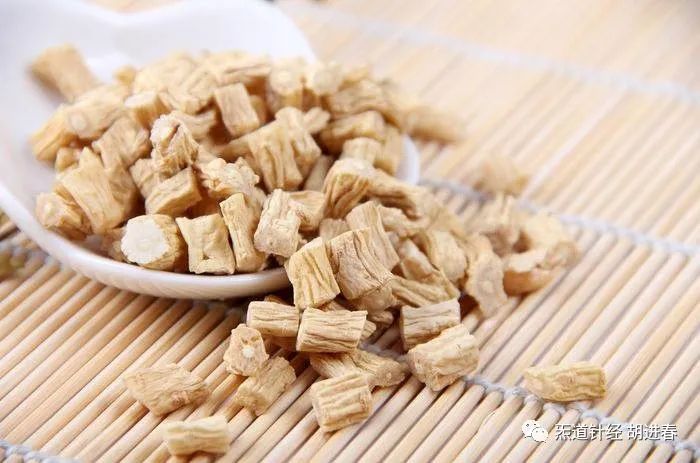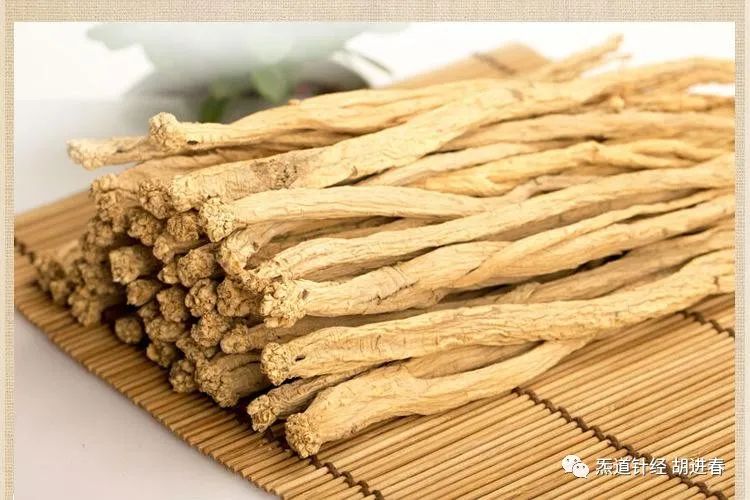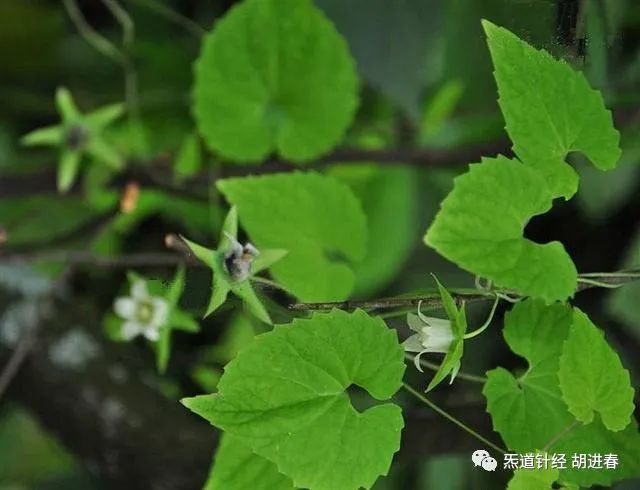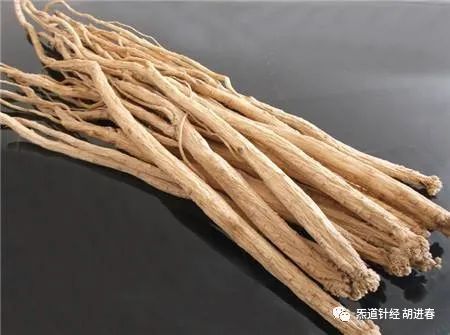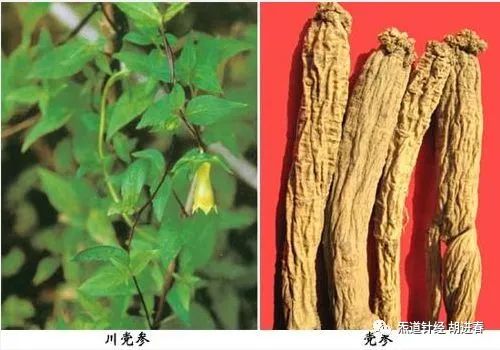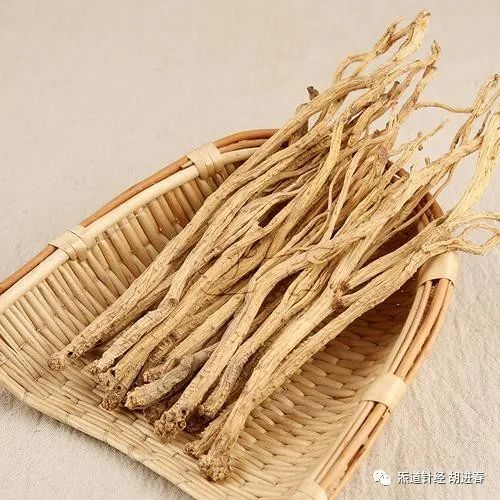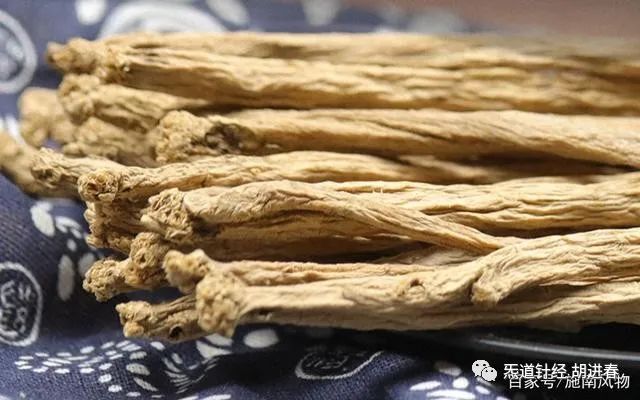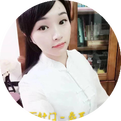🌸Daily Learning of a Chinese Herb: Dang Shen (Codonopsis)
Mnemonic: Dang Shen (Codonopsis) is sweet and neutral, tonifying the spleen and lungs, benefiting qi, stabilizing collapse, and generating fluids and blood.
Functions and Indications: Tonifies the middle, benefits qi, strengthens the spleen and lungs, nourishes blood and generates fluids.
Dang Shen (Codonopsis) is a traditional Chinese medicine derived from the dried roots of the plants Codonopsis pilosula, Codonopsis tangshen, or Codonopsis lanceolata. It has a sweet and neutral flavor and is associated with the spleen and lung meridians. The effects of Dang Shen include strengthening the spleen and lungs, nourishing blood, and generating fluids, making it useful for treating symptoms of spleen and lung qi deficiency, such as poor appetite, fatigue, cough, shortness of breath, insufficient qi and blood, pale complexion, palpitations, shortness of breath, thirst due to fluid damage, and internal heat leading to thirst. Dang Shen is sweet and neutral, enters the spleen meridian, and is neither drying nor greasy, making it effective in tonifying the spleen and nourishing the stomach, uplifting clear yang, and promoting the movement of middle qi. Its effects are similar to those of ginseng, but its properties are milder, thus it is often used as a tonic for qi. It is important to note that Dang Shen should not be used in patients with excess conditions or heat conditions where the righteous qi is not deficient; it is recommended to use Dang Shen based on proper differentiation of syndromes.
Dang Shen is a qi-tonifying herb with a neutral nature and sweet flavor, which can help with conditions caused by insufficient middle qi, such as poor appetite, fatigue, and loose stools. Regular consumption of Dang Shen tea can enhance the body’s immunity and prevent disease. Dang Shen enters the spleen and lung meridians, and has the effect of strengthening the spleen and lungs, improving the functions of the lungs and spleen-stomach, and treating symptoms caused by spleen and lung weakness, such as pale complexion, cold extremities, shortness of breath, and cough. Additionally, Dang Shen nourishes blood and generates fluids, enhancing the body’s hematopoietic function, which is beneficial for patients with anemia. If symptoms of palpitations, chest tightness, dry throat, and thirst arise due to blood deficiency and fluid damage, Dang Shen can also help alleviate these symptoms. The main functions of Dang Shen include: 1. Strengthening the spleen and benefiting qi: It can regulate symptoms such as abdominal distension, poor appetite, general fatigue, and even muscle weakness and edema due to spleen deficiency; 2. Tonifying the lungs and benefiting qi: If a patient exhibits insufficient lung qi, characterized by shortness of breath and fatigue, Dang Shen can effectively tonify lung qi when used appropriately; 3. Tonifying qi and nourishing blood: Dang Shen can be combined with other blood-tonifying herbs to achieve the effect of tonifying qi and nourishing blood. The tangible blood cannot be quickly generated and usually requires qi to generate blood. By using qi-tonifying herbs, patients can achieve both qi and blood generation. Therefore, Dang Shen is a very important qi-tonifying herb. The famous decoction Si Jun Zi Tang (Four Gentlemen Decoction), which consists of Dang Shen, Bai Zhu (Atractylodes), Fu Ling (Poria), and Gan Cao (Licorice), owes much of its effectiveness in strengthening the spleen and stomach to Dang Shen.
Dang Shen is a herb that promotes the movement of the middle jiao, with the effects of tonifying the spleen and lungs and generating fluids. Dang Shen has a sweet and neutral flavor, entering the spleen and lung meridians, and is used for symptoms of spleen and stomach weakness, such as poor appetite and loose stools. If there is weakness in the limbs, Dang Shen can strengthen the spleen and tonify qi and blood. If lung deficiency leads to symptoms of shortness of breath and cough, Dang Shen can also tonify lung qi. Additionally, Dang Shen can be used for conditions such as spontaneous sweating, shortness of breath, and fatigue, and is also effective in treating diseases caused by deficiency of both qi and blood.
The main effect of Dang Shen is to tonify qi. It is most suitable for those who are usually fatigued, lack energy, have a low voice, feel short of breath, and experience difficulty breathing with slight exertion due to lung qi deficiency. It is also suitable for those with spleen and stomach qi deficiency, characterized by weakness in the limbs, poor appetite, and loose stools. Dang Shen is commonly used in combination with Bai Zhu, Fu Ling, and Gan Cao, forming the well-known qi-tonifying and spleen-strengthening formula Si Jun Zi Tang. For those with both lung and spleen qi deficiency, Dang Shen can be combined with Huang Qi (Astragalus), Bai Zhu, Fu Ling, Chen Pi (Tangerine Peel), Dang Gui (Angelica), Sheng Ma (Cimicifuga), Chai Hu (Bupleurum), Gan Cao, Sheng Jiang (Fresh Ginger), and Da Zao (Jujube) to create the famous Bu Zhong Yi Qi Tang (Tonify the Middle and Benefit Qi Decoction).
Dang Shen has a sweet flavor and neutral nature, and is commonly used in medicine for conditions such as lung and spleen qi deficiency, poor appetite, fatigue, cough, shortness of breath, insufficient qi and blood, pale complexion, palpitations, shortness of breath, thirst due to fluid damage, and internal heat leading to thirst. Patients typically present with symptoms such as low energy, shortness of breath, fatigue, poor appetite, and qi deficiency, including sensitivity to cold and tendency to sweat. Taking Dang Shen can help tonify qi and nourish blood. Additionally, it can help regulate thirst symptoms in diabetes.
However, Dang Shen is not suitable for all patients, such as those with unresolved exterior conditions or dampness in the middle jiao. Although Dang Shen and ginseng have similar effects, Dang Shen is much milder. Generally, patients with deficiency can substitute Dang Shen for ginseng, but in severe cases of collapse, especially in patients with critical deficiency and yang collapse, Dang Shen should not replace ginseng, and it is necessary to combine it with Fu Zi (Aconite) and Gan Jiang (Dried Ginger) to achieve a very good therapeutic effect.
Dang Shen has the effect of benefiting the spleen and lungs, and can tonify the middle and benefit qi. Dang Shen is sweet and neutral, entering the spleen and lung meridians, and can be used for spleen qi deficiency, such as when a patient has no appetite and experiences loose stools. Dang Shen can tonify the spleen. Additionally, Dang Shen can strengthen the lungs, treating symptoms of shortness of breath and palpitations due to lung qi deficiency. It also has a tonifying effect for symptoms of shortness of breath, cough, and asthma due to lung qi deficiency, and can treat internal heat leading to thirst, such as in diabetes.
Suitable Population: Those with insufficient qi and blood, spleen and lung qi deficiency, and thirst due to fluid damage.
Contraindicated Population: Those with excess pathogens or internal heat.


